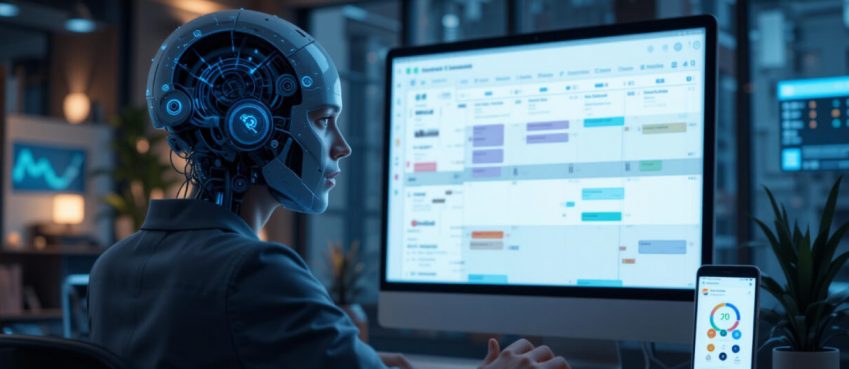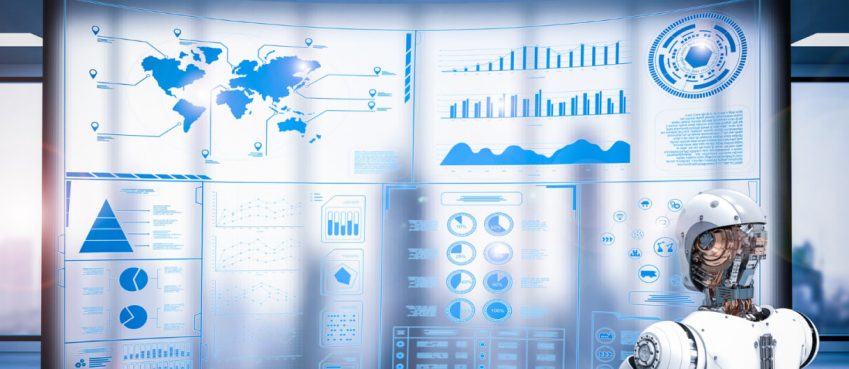
Artificial Intelligence is making a mark in nearly all industries. The high-tech sector is its next target. Many questions have been raised by the emergence of Artificial Intelligence within the engineering and mechanical industries.
What are the implications of Artificial Intelligence for the high-tech sector? Do you think it is a good idea for AI investments? Is AI going to replace engineers? Artificial intelligence could easily take over all high-tech fields.
Artificial intelligence is rapidly developing, there is no doubt. It can be used in many different applications and has made remarkable improvements in many industries. Google, Amazon, and Facebook algorithms are just a few examples.
However, AI is not likely to overtake the high-tech mechanical and engineering industries anytime soon. While it may alter the existing tools in the industry, it is not able to replace the human workforce.
This article examines the potential impact of Artificial Intelligence on the high-tech sector. We also discuss the barriers to AI adoption in this industry.
Scope of AI in High Tech Industry
AI is now a part of nearly every industry, even high-tech. AI has seen significant advancements in recent years, and it seems to have great potential in the tech industry.
Also read: Top 10 Business Intelligence Tools of 2021
Efficient Research
Research is the most important area of Artificial Intelligence. AI tools and software today are more efficient at storing and evaluating data.
These tools allow researchers to make the most of existing research. With the aid of AI, researchers can now concentrate on finding solutions rather than spending time extracting information from past work.
Bigger Database
Artificial intelligence can process and assess data faster than the human brain. It can store more data than other computing devices, and it processes it in a matter of seconds.
It can also be used to link the existing database with data from centuries ago. AI software and tools can help you drive results from a large database. They may one day take over the roles of data analysts as their assistants.
Accuracy Guaranteed
AI software and tools work with larger databases and can make more accurate judgments in most instances. A human brain might get confused when trying to identify a chemical or metal. AI tools can detect it quickly and accurately.
AI tools can also be used to quickly detect fingerprints and facial features. Artificial Intelligence is expected to replace many engineers and specialists due to its accuracy with AI tools.
Also read: Top 10 AI Infrastructure Companies In The World
Barriers to AI adoption
Despite the potential of AI in high-tech industries, there are still some hurdles to AI adoption.
Higher Resource Consumption
All AI-based projects take a lot of investment and time. For the AI model to be implemented in an industry or organization, it will require special hardware and software tools. Training the model can be costly and time-consuming.
Many investors are reluctant to invest in AI projects because of the low success rate. This is why high-risk AI projects are not a good investment option.
Long and tedious process
It is tedious and time-consuming to build AI-based hardware or train AI models. It produces slower results.
Keep in mind that the pace of high-tech industries is faster than the average person’s, so many AI models and machines become obsolete long before they are executed. The time between an idea and its execution can be a barrier to AI development.
Also read: How To TikTok Recharge & Buy Coins To Send Gifts? (2024 Guide)
Dependence on Data
The data feed is crucial for AI tools and software. They can only process the data in the system and make evaluations of it. AI tools cannot process or evaluate anything beyond what is available. It cannot also detect errors in the data it receives.
Any human error in data feeding can lead to the complete failure of an AI model. This data dependence is another obstacle to its adoption in high-tech industries.
Insufficient Creativity
High tech industry requires fast and efficient decision-making. Despite AI tools being able to make quick and efficient decisions in many situations, they lack creativity.
AI tools cannot make abstract decisions based upon scenarios in the same way that a human brain can. While AI tools may be versatile, they lack the creativity of the human brain.
Also read: What Does “FedEx Shipment Exception” Status Mean? What To Do & How To Handle It?
Wrapping up
Artificial Intelligence has a lot of potential in high-tech industries, particularly in the computing and telecommunications fields. It still has a lot of work to do before it is adopted in engineering and biotechnical fields.
Top 10 News
-
01
Top 10 Deep Learning Multimodal Models & Their Uses
Tuesday August 12, 2025
-
02
10 Google AI Mode Facts That Every SEOs Should Know (And Wha...
Friday July 4, 2025
-
03
Top 10 visionOS 26 Features & Announcement (With Video)
Thursday June 12, 2025
-
04
Top 10 Veo 3 AI Video Generators in 2025 (Compared & Te...
Tuesday June 10, 2025
-
05
Top 10 AI GPUs That Can Increase Work Productivity By 30% (W...
Wednesday May 28, 2025
-
06
[10 BEST] AI Influencer Generator Apps Trending Right Now
Monday March 17, 2025
-
07
The 10 Best Companies Providing Electric Fencing For Busines...
Tuesday March 11, 2025
-
08
Top 10 Social Security Fairness Act Benefits In 2025
Wednesday March 5, 2025
-
09
Top 10 AI Infrastructure Companies In The World
Tuesday February 11, 2025
-
10
What Are Top 10 Blood Thinners To Minimize Heart Disease?
Wednesday January 22, 2025







